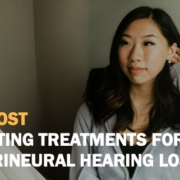Navigating Treatments for Sensorineural Hearing Loss in Prospect, CT
Sensorineural Hearing Loss (SNHL) occurs when the tiny hair cells in the cochlea or the auditory nerve are damaged. These hair cells are crucial for converting sound waves into neural signals, which are then transmitted to the brain. When these cells or the auditory nerve are compromised, the sound energy that reaches the cochlea cannot be effectively converted, leading to hearing loss.


